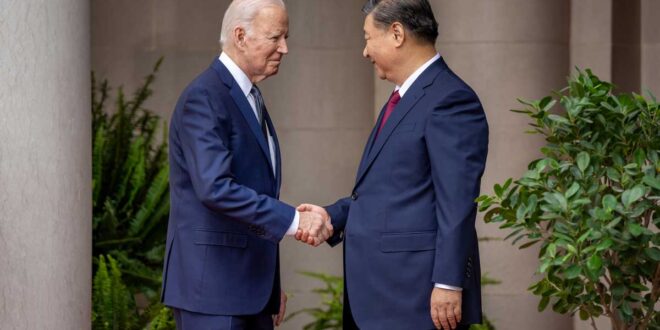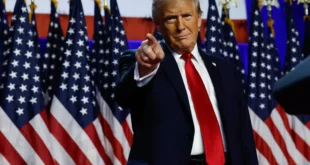A significant number of intellectuals, and social and political scientists believe that the present era is characterized by an imminent confrontation between the United States and China. The political competition for global leadership between these two nations cannot avoid clashing due to their enormous economic potential and military strength. Achieving hegemony in the current world is an extremely difficult, if not impossible, task. Hence, leadership remains a crucial aspect of political existence. While a bipolar world with China and the United States is possible, it may not be the most efficient and rational system for the current world. Apart from these two giants, there are around a dozen other large, ambitious, and wealthy players who are quite effective and influential. Therefore, the issue of balancing the Big Two becomes relevant in addition to the struggle for leadership between Washington and Beijing.
Among these powers, are Russia and India – two powerful players in world politics. Moscow and New Delhi have maintained positive bilateral relations without any negative trends or problems. Despite not being allies, they are united by many documents that together make it possible to talk about a strategic partnership. This unique phenomenon extends to the fields of economics, finance, military-technical cooperation, education, and culture. The relations in the area of political dialogue have always been based on high levels of trust. The leaders of the two countries, Vladimir Putin and Narendra Modi, have a strong and mutually respectful personal bond, which serves as the foundation for their bilateral relations.
The strategic partnership between Russia and India is unique because there are few historical examples of these two countries having misunderstandings or rejecting each other’s policies. This stability and high level of trust is a luxury in today’s unstable world. Political leaders and elite groups in both countries value stability and want to avoid conflicts. They also want to avoid any unresolved issues that could lead to instability. In addition, India and Russia both aim to develop a sovereign and independent foreign policy. Major actors in international affairs often try to influence the policies of Moscow or New Delhi, but their attempts are usually unsuccessful and could even lead to a backlash. Due to their large potential, solid military and economic power, and nuclear capabilities, these countries are not likely to become tools in the hands of third influential forces. The policies of India and Russia will continue to be independent, determined by the elite groups in these countries, based on their understanding of their national interests.
In this regard, there may be certain, sometimes serious, tensions with other partners of both countries. Russia has a close and trusting relationship with the growing powerful China. In turn, India, often called the largest democracy in the world, has close and multilevel relations with the United States. However, these two systems are not ideal and may face problems. Friction and misunderstandings can quite often arise between allies within certain partnerships in today’s world. Thus, relations between Russia and China, India and the United States should not and probably will not become an obstacle to the deeper development of ties between Moscow and New Delhi.
Russia and India have a long-standing relationship based on trust and stability. However, there have been some structural differences in the historical partnership between Russia and China. Although the relationship between China and Russia is currently at a high level, Moscow has traditionally expressed dissatisfaction with China’s efforts to re-engineer some military equipment that was supplied to Beijing. Furthermore, the Russian conservative and siloviki establishment are constantly concerned about China’s increased activity in the Russian Far East. Russia shares a long land border with China and maintains a friendly system of relations while keeping a watchful eye. This is a rational approach from a state perspective.
India, in turn, is making efforts to improve its international diplomatic status and rank in the world. However, Indians view their colonial past in a negative light, and any attempts by Western countries such as the United States and Europe to educate New Delhi are met with misunderstanding and mild irritation. India seeks to increase the independence and significance of its foreign policy, causing some annoyance to powerful Western powers who are accustomed to a different system of relations. India is also in a historical conflict with nuclear Pakistan, which some Western countries perceive as a key partner in the Islamic world. It is worth noting that in all the wars between India and Pakistan, the US and the West have supported Islamabad, while the Soviet Union has provided unequivocal support and assistance exclusively to India. Pakistani military’s close ties to various radical Islamist groups continues to worry India. At the same time, India is also concerned about the growing power and ambition of neighboring China, which brings its position closer to the US.
Maintaining a balance in the complex system of geopolitical arrangements and relationships is crucial. This theory is well-researched and well-developed in the field of international relations. Political actors often take action to maintain a permanent balance that serves their national interests. Some actions may try to upset this balance in their favour, which immediately results in a response from the other side. States are conservative phenomena and organisms, especially larger and more complex ones. The bureaucratic apparatus and multilevel architecture of the state strive for stability, sustainability, and permanence.
Russia and India are expected to establish a strong and trustworthy bilateral relationship that prioritizes mutual trust and cooperation. The two countries have no unresolved issues, deep tensions, or conflict zones between them, which will allow them to continue to find common ground and strengthen their positions in Eurasia and the world. Central Asia and Afghanistan are particularly important areas of interest for both countries, as they have a history of successful cooperation in those regions. Additionally, both countries have a fundamental interest in combatting international terrorism, which is an essential aspect of their cooperation. Military-technical cooperation also remains a mutually beneficial area of focus for these two countries.
The current bipolarity where only the USA and China dominate is not favourable for many powerful players. Besides some ambitious European countries, influential countries in Asia, the East, and even Latin America would also like to strengthen their prestige in global affairs. A multipolar system would be more effective in building the world system as it would suit a greater number of influential powers and civilizations. In this context, balancing Russia and India, together or separately, against the powerful USA and China, appears logical and perhaps inevitable.
 Geostrategic Media Political Commentary, Analysis, Security, Defense
Geostrategic Media Political Commentary, Analysis, Security, Defense





